Research Debunks Stereotype of Balkans As Violent Region
ZAGREB, 10 Oct, 2021 - The century-old stereotype that the Balkans is a region of omnipresent violence was recently debunked in a book showing that violence in the Balkans is a little more present than in northern, western and central Europe, but less present than in eastern Europe, America and Asia.
The book by Croatian criminologist Anna-Marie Getoš Kalac, published by Springer, researches homicides in six Balkan countries.
"Violence in the Balkans - First findings from the Balkan Homicide Study" contains empirical data from 2,073 case files in Croatia, Hungary, Kosovo, North Macedonia, Romania and Slovenia, analysing information on 2,416 perpetrators and 2,379 victims.
The book says homicides mostly occur in towns and least in cities, including the capitals of those six countries.
Murders generally occur between intimate partners and family members, while in attempted murders the victim and the perpetrator most often are not family relations.
In the Balkans, as in all of Europe, homicides between total strangers occur in less than 15% of cases, Getoš Kalac, a professor at the Zagreb Faculty of Law, says in her research.
Homicide perpetrators are most frequently men and the victims are mostly other men. As for violence between intimate partners, men are the perpetrators in 15% of cases and women in 39%. Although they are less frequently homicide perpetrators, when they commit it, 72% of them kill men.
As for motive, more violence is premeditated than committed in the heat of the moment and about half the motives remain unclear, followed by violence out of revenge or greed.
Despite easier access to firearms due to the 1990s wars, only 13% of perpetrators use firearms, whereas 62% use cold steel and 21% use no weapon at all, says Getoš Kalac.
She says she could not establish a link between violence and organised crime and that only 1.6% of all perpetrators can be at least somewhat linked to the criminal underworld. The reason is that in those cases the perpetrators are often unknown and are not entered into case files.
In two out of three particularly brutal cases, the victims are women, and in those cases it is rarely established that the perpetrators were mentally unstable or had diminished responsibility. Women make up 28.5% and men 71.5% of victims in less brutal homicides.
The book reveals a picture of homicides that greatly contrasts with popular preconceptions about the Balkans according to which the region is inclined towards violence due to a tradition of robbery and the legacy of weak states, which is ascribed to long foreign rule, Hans-Jörg Albrecht, a leading German criminologist, says in the preface.
The book shows that homicides in the Balkans don't happen in the streets or between strangers, and that they are rarely a consequence of a conflict in the grey economy or of violent retaliation, Albrecht adds.
He says criminological research interests in Europe increasingly focus on some subgroups of victims and perpetrators, and that this could reflect political agendas. As an example, he mentions debates on femicides which call for stricter punishment for murders of women, although a global homicide study by the UN Office on Drugs and Crime shows that four in five victims are men.
Getoš Kalac says that in the Balkans as well as elsewhere in Europe quite a large number of murders remains hidden among natural deaths.
For more on lifestyle, follow TCN's dedicated page.
For more about Croatia, CLICK HERE.
Zagreb Gay Pride 2021 Analysis: Issues Still Exist, Pride Celebrates History and Present Equality
July 5, 2021 - Gay rights in Croatia still have challenges ahead, but even if all problems are resolved, Pride should remain a commemorative event. A look at the history of gay culture in Croatia and the current climate in this Zagreb Gay Pride 2021 Analysis by TCN reporter Ivor Kruljac.
Zagreb Pride is the oldest pride in Croatia. First held in 2002, it attracts more and more people every year, from LGBTQ members, straight people that support gay rights to NGOs, human rights activists, and even politicians from the left and liberal specter. Over the years, the event grew from a one-day pride to Pride month, full of educational and entertaining events regarding LGBTQ issues and a chance for people with the same preferences to meet and celebrate who they are.
Pride month is marked in June in honor of the 1969 Stonewall Uprising in Manhattan.
„The Stonewall Riots, also called the Stonewall Uprising, began in the early hours of June 28, 1969, when New York City police raided the Stonewall Inn, a gay club located in Greenwich Village in New York City. The raid sparked a riot among bar patrons and neighborhood residents as police roughly hauled employees and patrons out of the bar, leading to six days of protests and violent clashes with law enforcement outside the bar on Christopher Street, in neighboring streets, and in nearby Christopher Park. The Stonewall Riots served as a catalyst for the gay rights movement in the United States and around the world“, reminds History.com.
When it comes to LGBTQ in Croatia, as you can expect with the ideological divide Croatians generally experience, there are mixed feelings on the issue.
From street violence to a family event
Participating in the first Pride in 2002 required that if you are a man loving a man ready to openly admit it, you had to have balls.
The attacks by skinheads and other „morally concerned citizens were fierce and violent. Participants truly needed police protection which was provided but also needed to be careful to not get hit by the incoming rocks that were thrown among the participants.
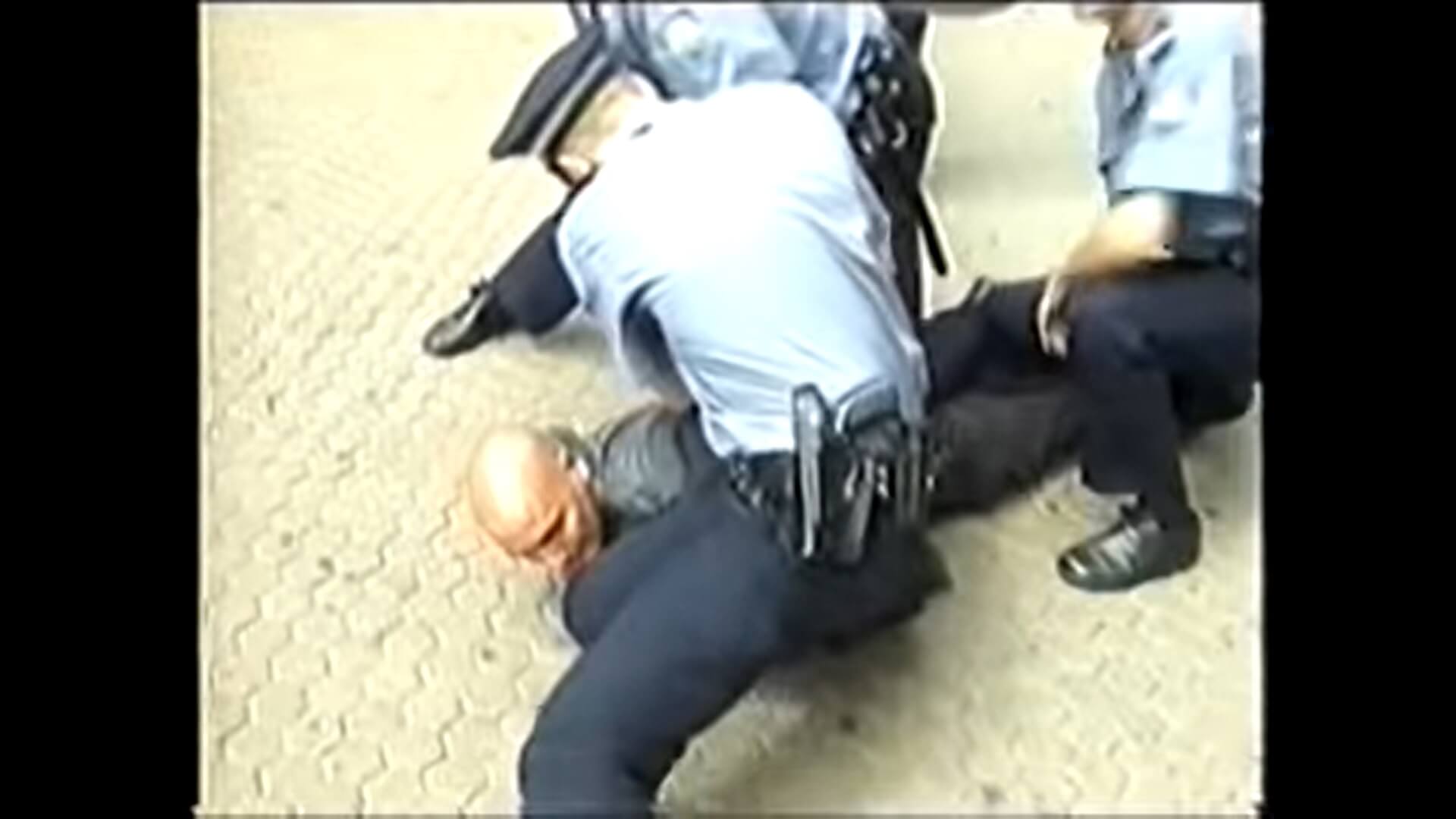
Police arresting violent skinhead at the first Zagreb Pride in 2002, screenshot / Zagreb pride
But, at least for Zagreb, the situation got better and more open. Today, pride is the forthcoming celebration of love and freedom, and entire families can be seen to join the picnic at Ribnjak park to teach their children tolerance and that people are not sick or different from others because of their sexual preference. Other larger cities in Croatia, such as Split, slowly but surely, do follow that path too, and Rijeka, the pinnacle of liberal Croatia, is also a very gay-friendly city.
Of course, a political counterstrike is expected and quite strong. The first most notable one was the 2013 referendum, where it was voted that the Croatian constitution declares marriage as a „community between a man and woman“. The goal was to deny LGBTQ couples the same rights as enjoyed by straight people.
However, the bill on life partnership outplayed that attempt.
In the meantime, LGBTQ couples can also adopt children in Croatia, as Constitutional Court concluded that gay couples fostering children is not against the Croatian Constitution.
That decision and along with the general openness of Croatia towards LGBTQ was followed by a controversial carnival in Imotski where an effigy of a gay couple was burned. President Zoran Milanović demanded an apology from the organizers, and SDP's MP Arsen Bauk filed charges against the organizers.
Counting pluses and minuses, the report on Croatia being the 39th best country for LGBTQ visitors still seems to uphold. No changes for the better, but at least Croatia is still in the top third for this category of tourists.
Haters strike back
2020 and 2021 sadly saw the uprise of violence towards LGBTQ in the Croatian capital. Apart from the occasional tearing down or burning of the rainbow flag, Croatia was shocked with an attempt of burning a man in Maksimir Forest Park as well, with his sexual preference being the sole motive for the attack.
On the other side, this year's pride felt to start stronger than ever. The newly elected mayor Tomislav Tomašević joined the parade, along with stating that Zagreb is a city that is open to everyone. This year arranged a bit differently to adhere to corona measures; around 2500 participated in the event.
„Twenty of our prides made our city and our republic a better, more democratic, and joyous place for the life of all citizens“, was the main message of the 20th edition of Zagreb Pride.
As reported by Index.hr, the Zagreb Pride association representatives stated that the Croatian LGBTIQ community „became a powerful, responsible and self-aware part of the country, but that the fight isn't over“.
„Our constitution and our laws still do not include in a complete and fair way. Our streets and squares are still not free of hate. We didn't forget nor we will forget victims of homophobic and fascist rampage in this year and all previous years“, stated Zagreb Pride.
Sadly, while Pride itself went without issues, participants of the pride who walked the streets of Zagreb after pride with rainbow flags faced a series of physical attacks on several locations in Zagreb.
A week ahead of Pride, conservative MOST Party parliament member Nikola Grmoja complained that commercials displayed during EURO 2020 commercials were LGBTQ propaganda and that kids need to be protected from it and announced that he might include it in his anti-pedophile package. Grmoja's statement caused strong disagreements among the Croatian public, with several people (including celebrities) teasing him that if he wants to start battling pedophilia, he should start from church (as Grmoja is quite clerical). Božo Petrov, president of the MOST party, added more fuel to the fire when he supported Grmoja, stating that „minorities can't dictate what my children can learn in school“. He added that minorities need to be aware that they are minorities and that „we tolerate that," sparking more enrage from the public, with many comparing MOST to the controversial Hungarian Prime Minister Viktor Orban.
Zagreb Pride linked the post-Pride physical attacks with Petrov and Grmoja's public statements, and Petrov and Grmoja announced they would sue Zagreb Pride for slender.
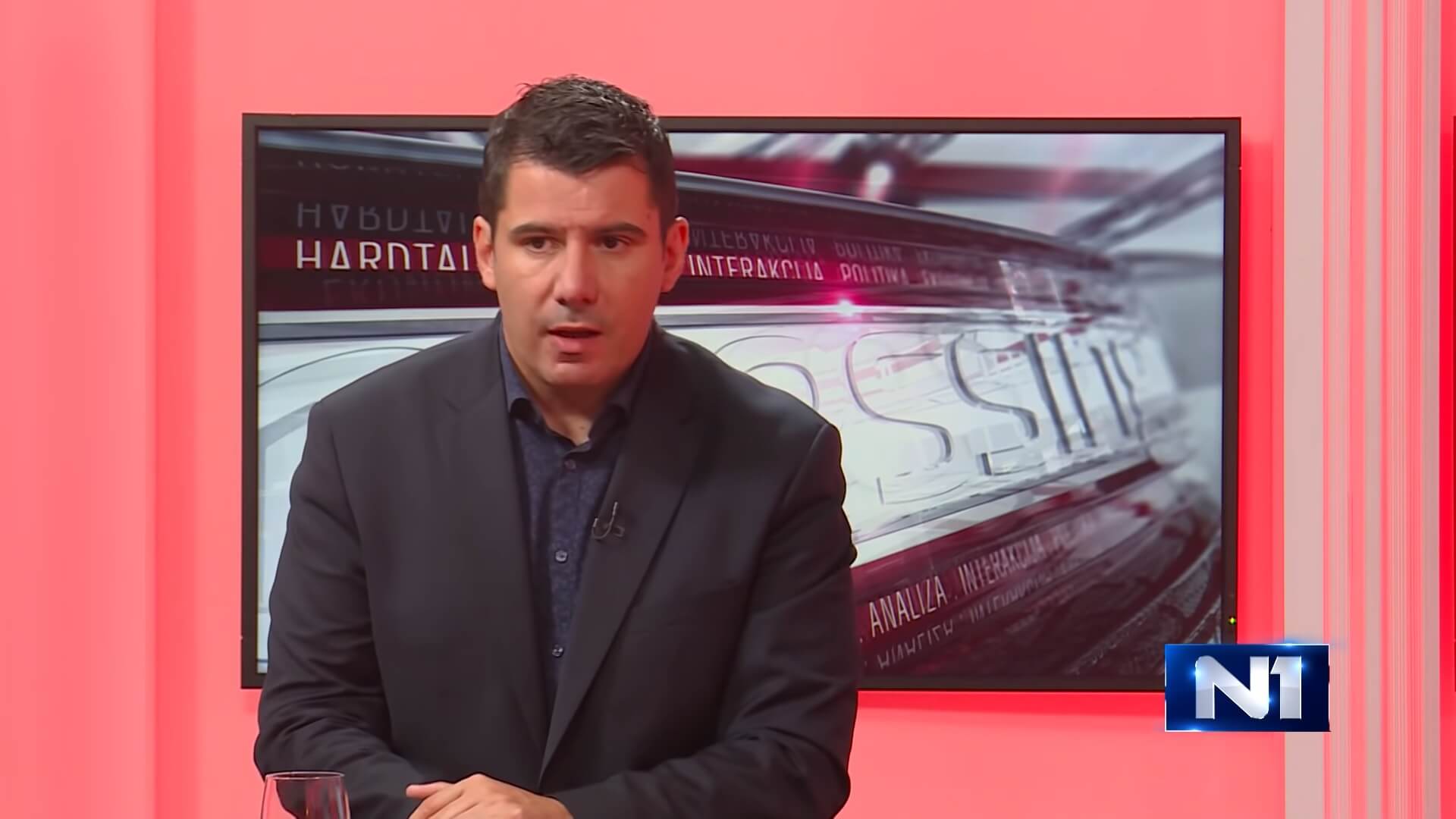
Nikola Grmoja, screenshot N1
The Law: "Gay is OK". Popular opinion: "Do it in your homes, not on the streets".
In this political escalation, what does the average Croatian think? Looking at the comments on social networks, it seems the majority of Croatians don't mind gays being gays and living how they like (even if they are not always happy with legal rights the LGBTQ community received). But, one sentiment in that „tolerance“ is particularly worrying.
„Live in your house however you want it. You don't have to wave around, like its a best thing ever“, said one of the online comments on Index.hr beneath the news on Petrov and Grmoja.
So it seems the public does not understand why Pride is important. First of all, as evident, the political climate is such that the battle for equality truly isn't over in Croatia, and Pride is the best way for the community to express what issues LGBTQ still face in Croatia. Additionally, pride month is also educational and supportive, and public presence show to other people who feel the same that they are not alone, as they might feel lonely and unable to find people who feel the same in everyday life.
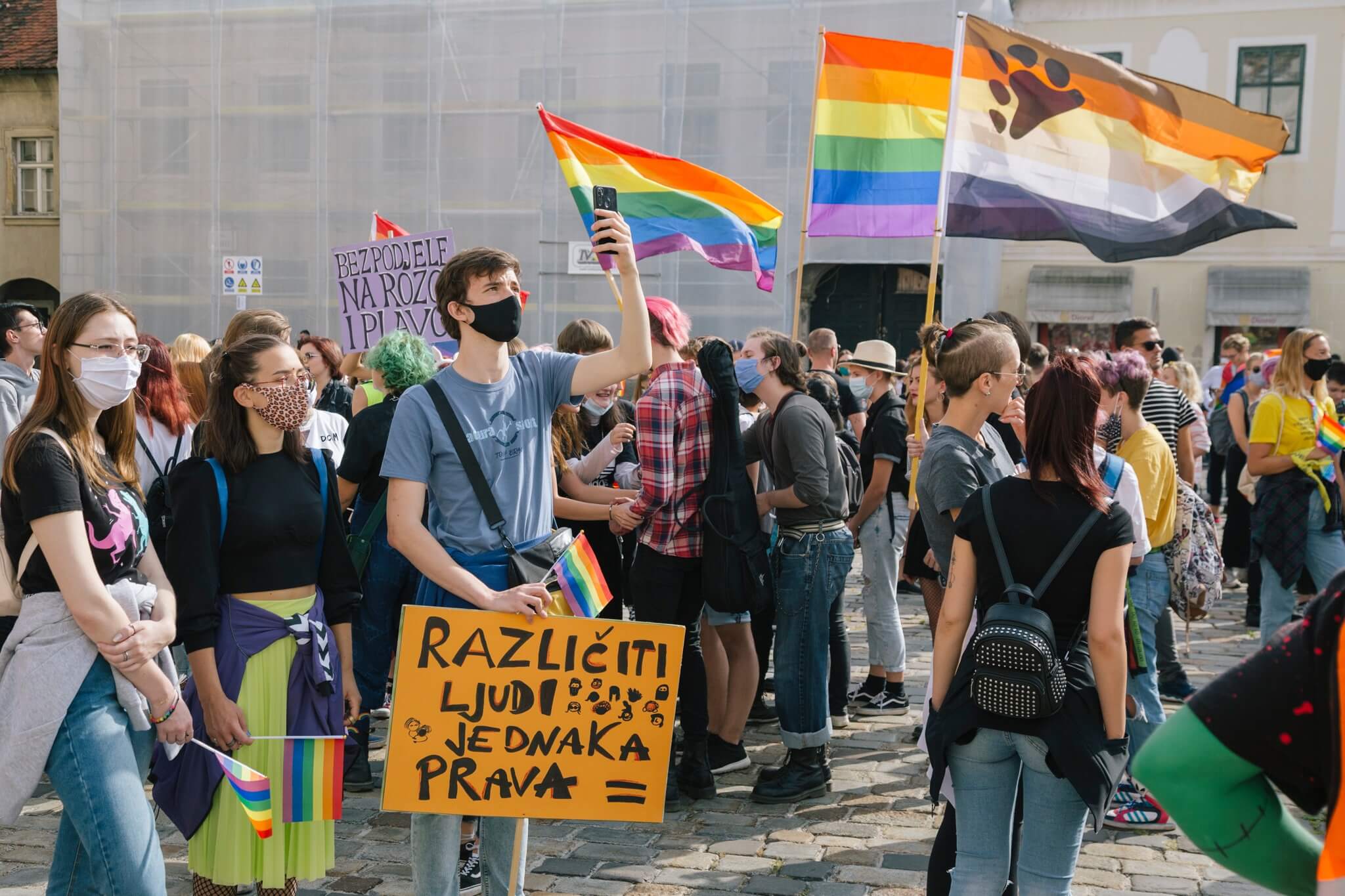
© Zagreb Pride
But, even if the law and constitution give the same rights and solves the problem of intolerance of LGBTQ people completely, does that mean that Pride should then be canceled? Well, Croatia won its independence and the war in the nineties. Does that mean we should stop commemorating the Homeland War? Or is it nice to honor and celebrate the victory and triumph over all obstacles Croatia had to face in its independence? Pride is a cultural, commemorative event honoring those who were or still are victims and oppressed for their sexual preference, either in Croatia or in the world. Croatia is a democratic country. Every group, national, ethnical, racial, religious, etc. should have the right to gather and honor its heroes. The right to gather and honor its tragedies and their dates and connect with other people who feel the same. If political elites are so concerned with keeping Croatians in Croatia, then they can't afford to discriminate or attack part of Croatian society solely based on their sexual preference. A preference that, unlike being violent or intolerable, can't be chosen.
Learn more about LGBT rights in Croatia and what LGBT tourists should know on our TC page.
For more about LGBT in Croatia, follow TCN's dedicated page.
Highlights of the Week: 5 Big Events in Croatia from June 28-July 4
June 3, 2021 - TCN's highlights of the week. A look at the events in Croatia from June 28 through the selection of TCN's reporter Ivor Kruljac.
EURO 2020 elimination and Dario Šarić in the NBA finals. Zagreb witnessing a series of arrests related to corruption of Milan Bandić's reign and explosive device planted in Split. In the midst of it all, is COVID-19 vaccination on its way to becoming obligatory and not optional? You may prefer the good news or the bad news, but here is both, as another week in Croatia comes to an end.
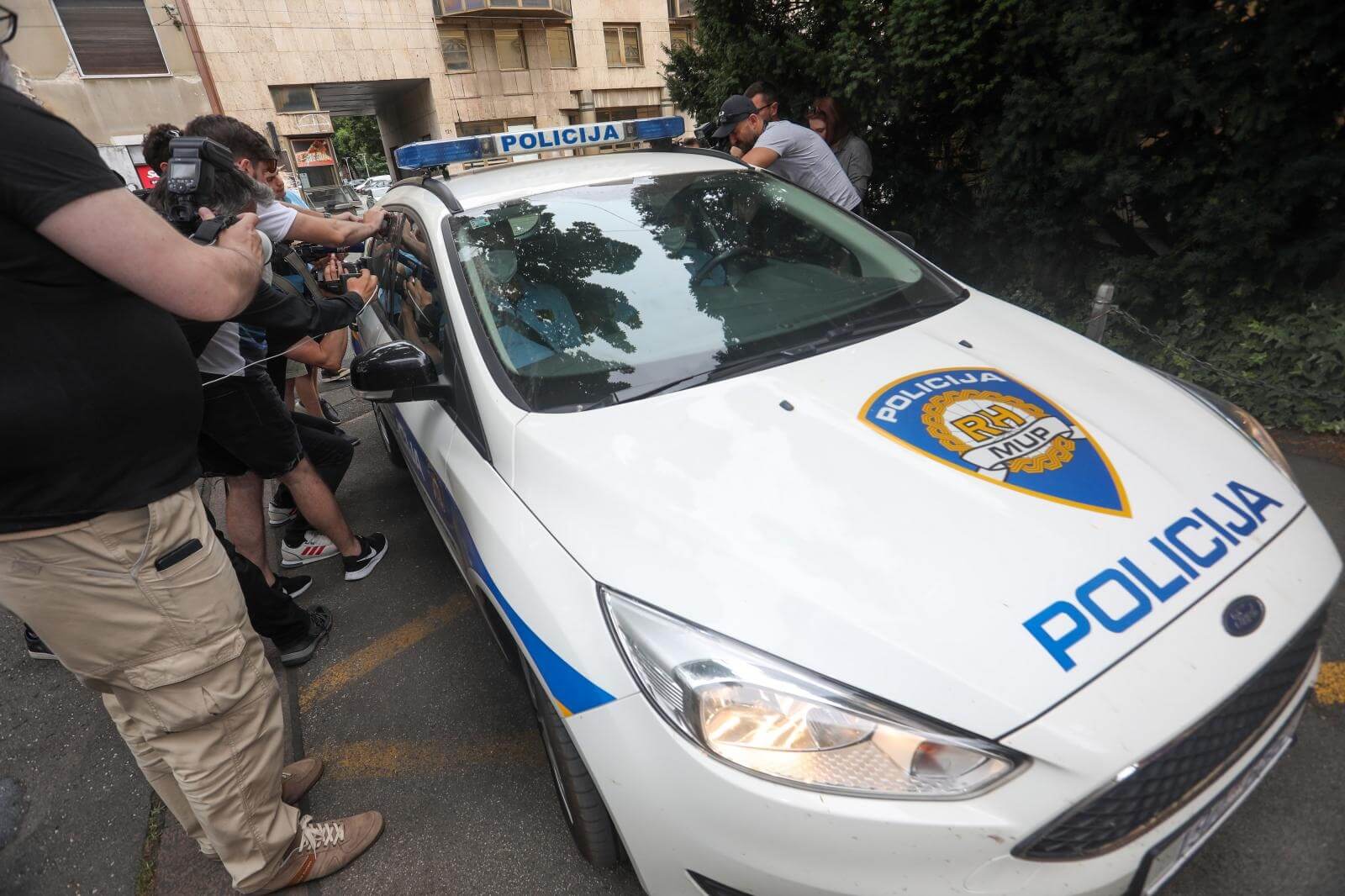
© Marin Tironi / PIXSELL
Highlights of the week: Uskok arresting Zagreb entrepreneurs and associates of former mayor Milan Bandić
The Office of Zagreb Mayor Tomislav Tomašević said on Wednesday that a preliminary investigation by members of the Office of the Chief State Prosecutor and the Office for Suppression of Corruption and Organised Crime (USKOK) started at the city administration offices at 6 am on Wednesday.
As TCN wrote, several people were arrested on suspicion of corruption, including the director-general of the HRT public broadcaster, Kazimir Bačić, Andrea Šulentić, and Ana Stavljenić-Rukavina. Both Šulentić and Rukavina were directors in Zagreb administration offices and close associates of former mayor Milan bandić. At the same time, details Bandić's heavy corruption (suspected and known publicly earlier) came to light.
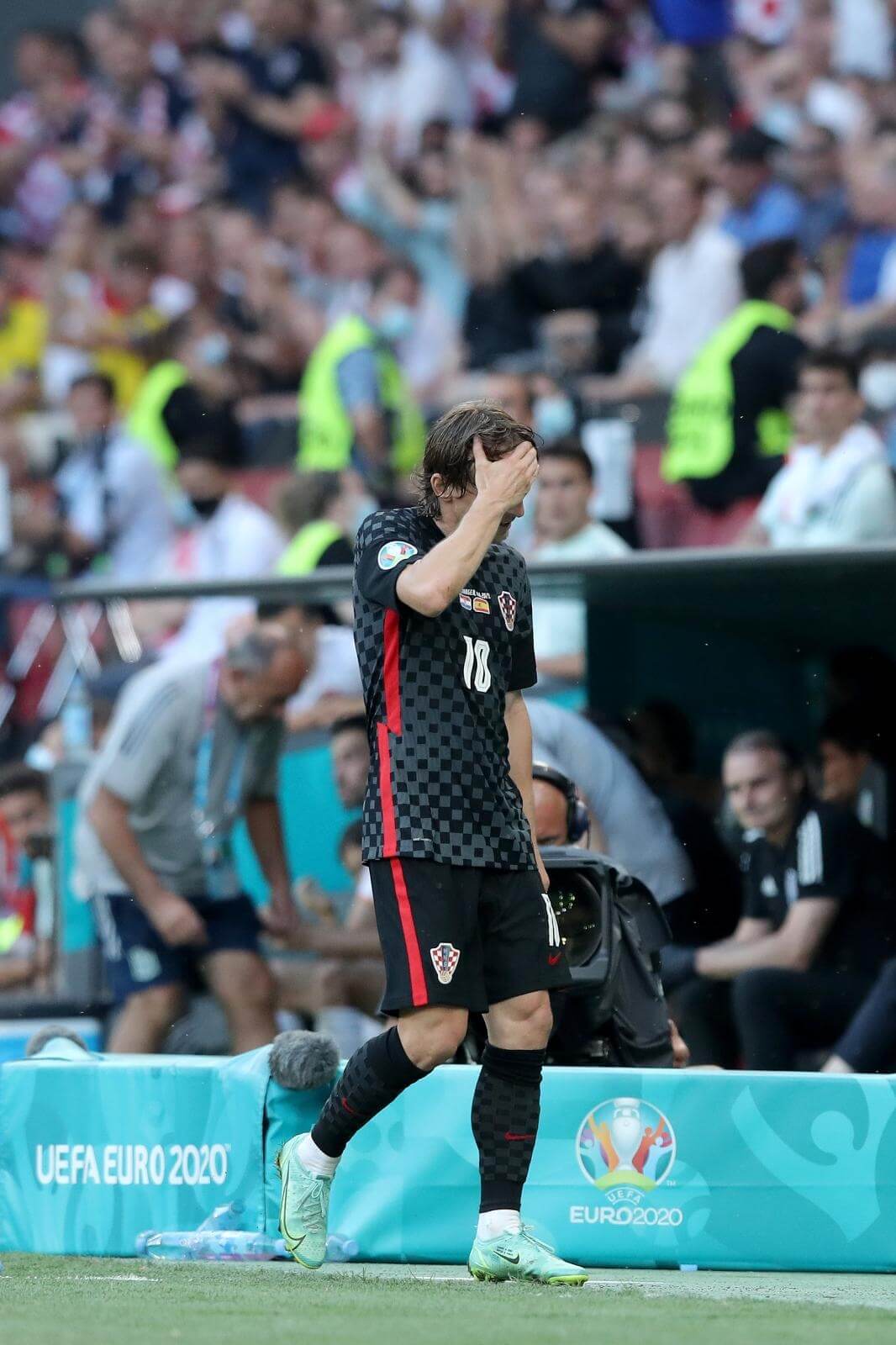
© Goran Stanzl / PIXSELL
Highlights of the week: Croatia eliminated from Euro 2020 after losing to Spain
Croatia and Spain met in Copenhagen on Monday for their EURO 2020 round of 16 match. It was a decent effort from Croatia, but not enough. Despite the Spain own goal in the 20th minute, the distraction as Rebić went to change his boots saw Spain even the score. The score towards the end of regular time went to 3:1 for Spain, but Croatia managed to lower to 3:2 and finally, in the added time, Pašalić scored for 3:3.
But, the euphoria was ruined for Croatia as in extra time, Morata earned Spain 4:3, and by 103rd minute, the total and final score was 5:3 for Spain. It was one of the more intense games on Euro so far as both teams show incredible spirit and persistence.
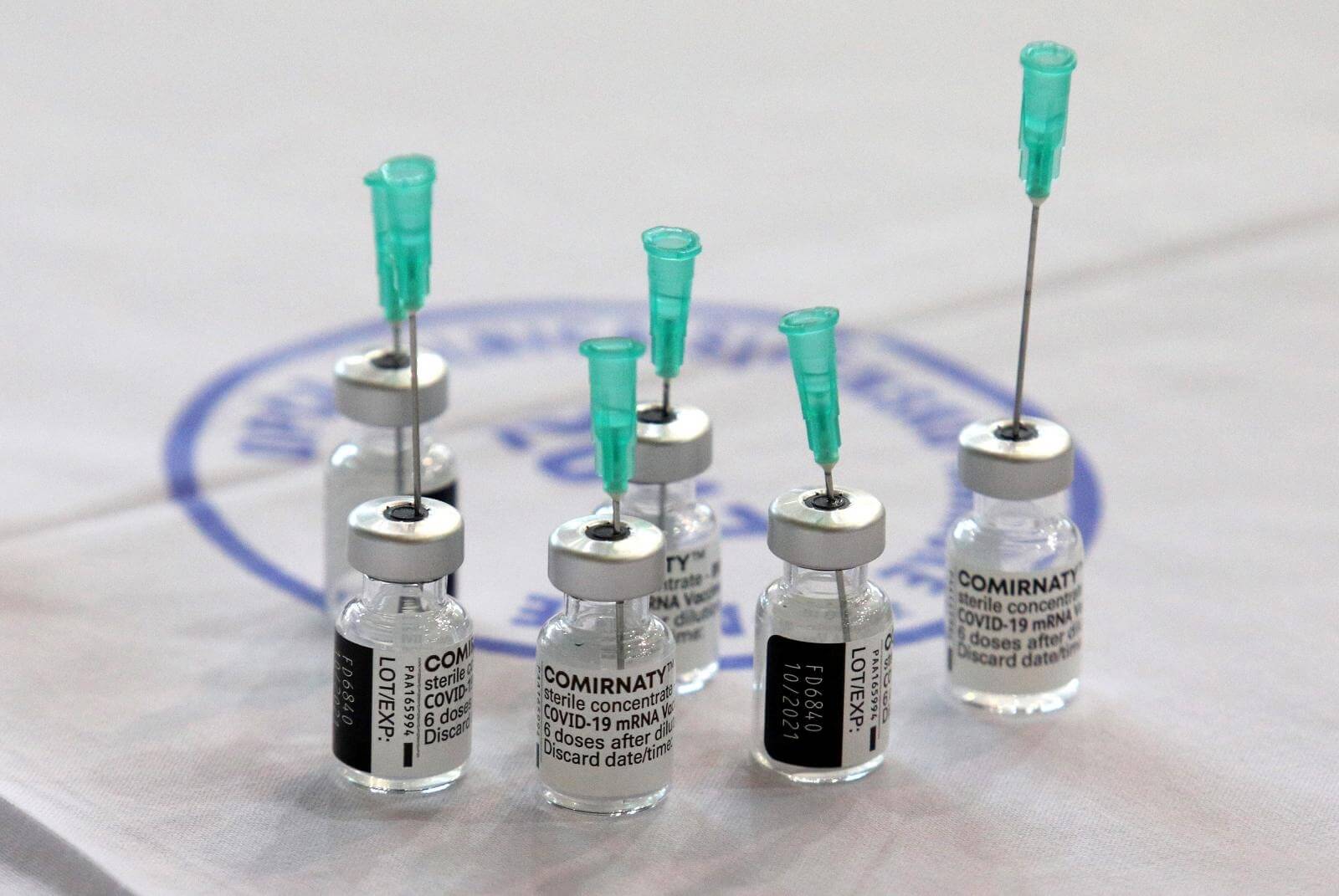
© Dusko Jaramaz / PIXSELL
Highlights of the week: Opposition parties against vaccination being required for job-keeping payments
The Social Democratic Party (SDP) called on Prime Minister Andrej Plenković on Thursday not to make vaccination a requirement for job-keeping payments, while the Most party said business owners were being blackmailed into vaccination.
As TCN reported, SDP leader Peđa Grbin elaborated his dissatisfaction via social networks.
"In Croatia, mandatory vaccination is possible, but the obligation is first established under the law on the protection of the population and then regulated and worked out under Immunisation Rules and the Mandatory Vaccination Programme. The obligation of vaccination can't be imposed in another way, notably not by linking support for entrepreneurs with vaccination," SDP president Grbin posted on Facebook.
"Most is against entrepreneurs, who are being forced into vaccination through blackmail, saving the government's mindless epidemic policy", stated the Most party on its official Twitter account. They added that Croatia was stuck with over 300,000 surplus vaccines because of poor government moves and communication omissions.
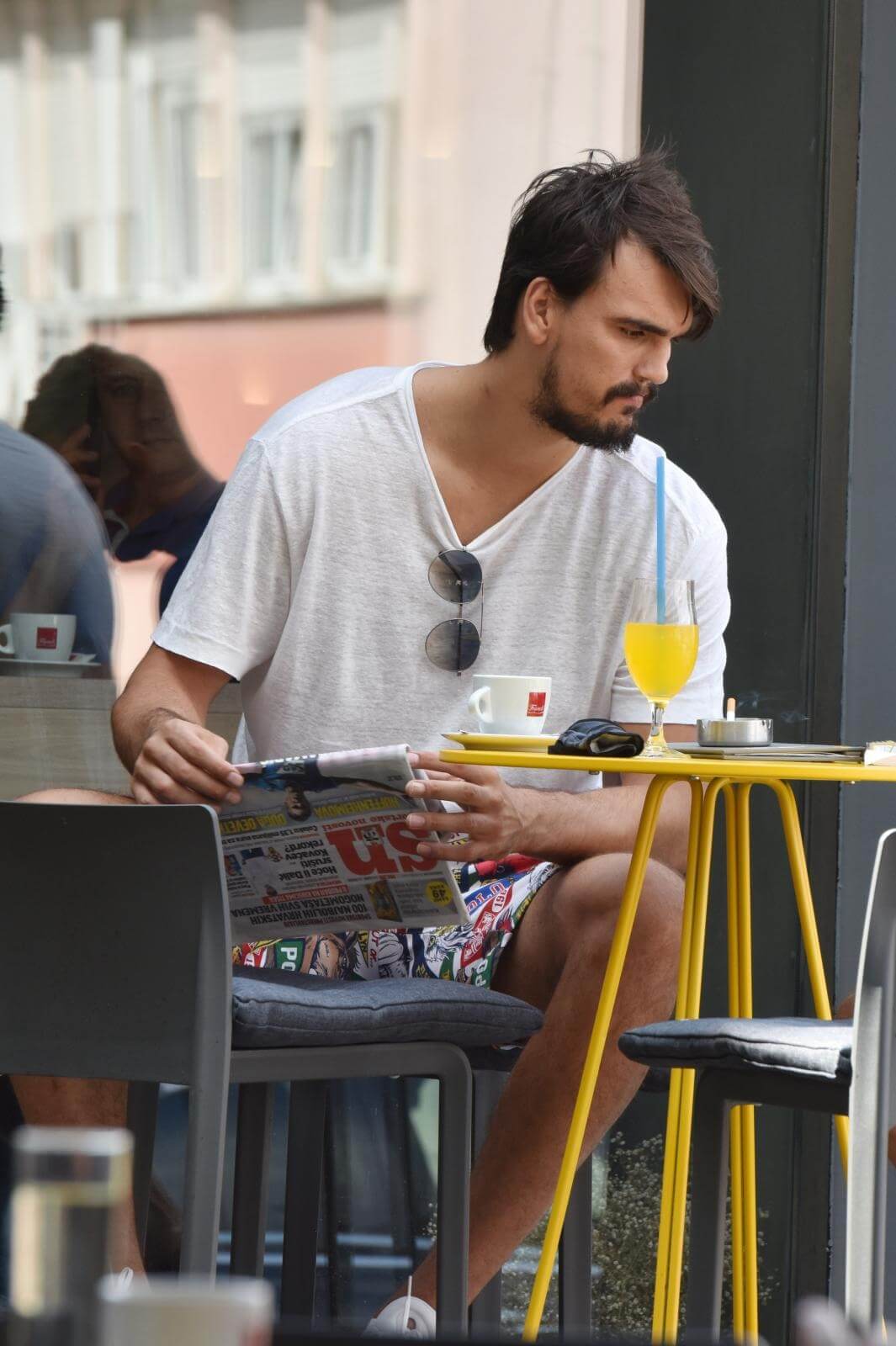
© Hrvoje Jelavic / PIXSELL
Highlights of the week: Dario Šarić becomes 5th Croatian basketballer in the NBA finals
Šibenik's Dario Šarić is the 5th Croatian basketball player to reach the NBA finals! As TCN wrote, Šarić became only the fifth Croatian basketball player in the NBA league finals, joining the company of Dražen Petrović, Toni Kukoč, Žan Tabak, and Ante Žižić. Šarić plays for Phoenix Suns. They topped the Los Angeles Clippers 4-2 in the NBA Western Conference Finals. Apart from basketball, Šarić also likes to enjoy sipping coffee on Šibenik cafe terraces, as portrayed in the photo.
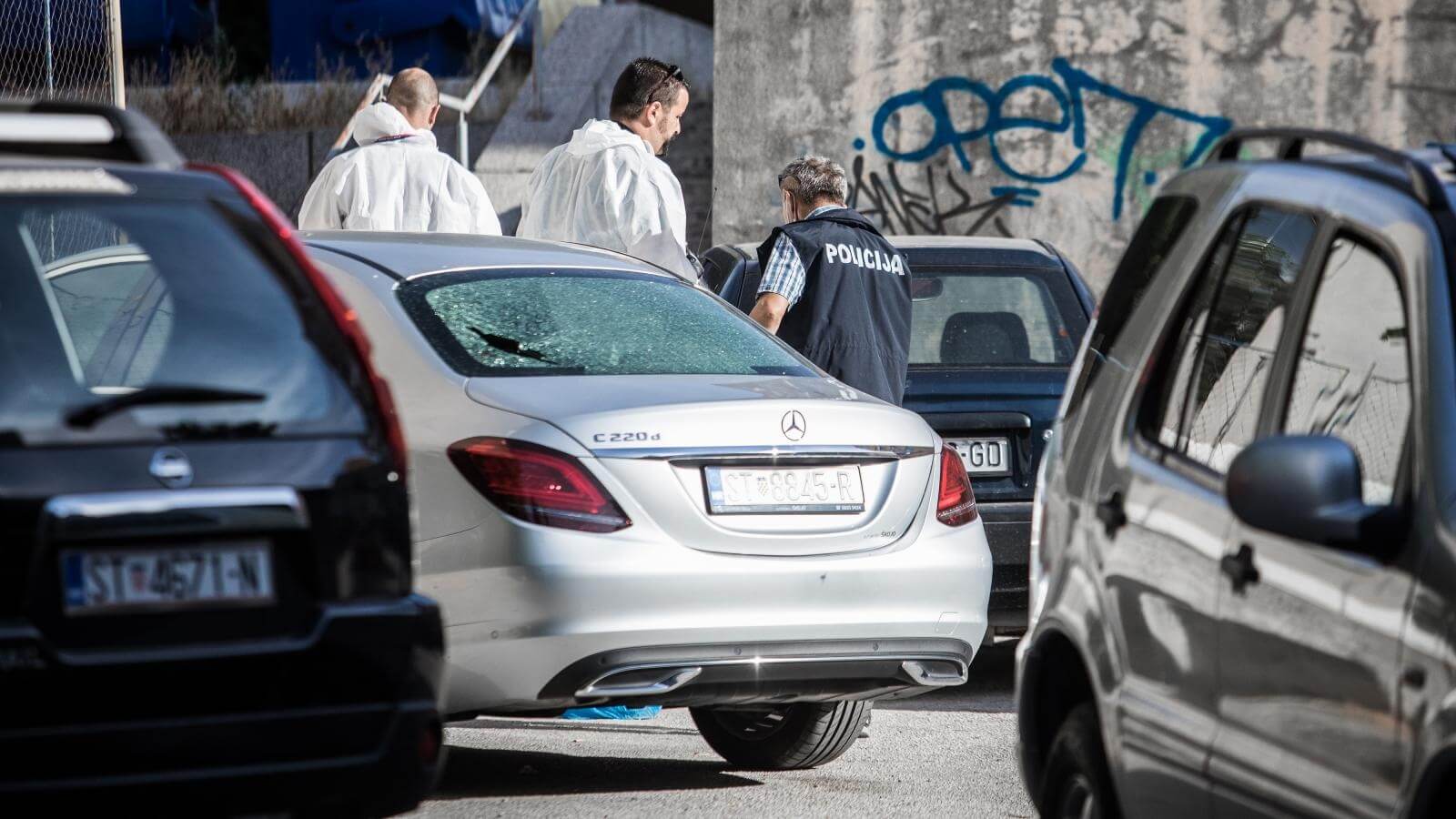
© Milan Sabic / PIXSELL
Highlights of the week: Bomb planted in Split. One person injured
In the night from Thursday to Friday, an unknown person placed an explosive device underneath a vehicle. The explosion damaged six cars, and one person required medical attention. The investigation is ongoing since Friday morning.
To learn more about Croatia, have a look at our TC website.
For more about news in Croatia, follow TCN's dedicated page.
EU Intellectual Property Office (EUIPO): 7% of Croatians Misled Into Buying Counterfeits
ZAGREB, 8 June, 2021 - Nine percent of Europeans and seven percent of Croatians have been misled into buying counterfeit products, according to a survey released by the EU Intellectual Property Office (EUIPO) on Tuesday.
The study, entitled "European Citizens and Intellectual Property", shows that consumers find it difficult to distinguish between genuine and fake products.
Nearly one in ten Europeans claimed that they were misled into buying counterfeits, but there were considerable differences between EU member states. 19% of Bulgarians, 16% of Romanians and 15% of Hungarians said they were deceived, compared to 2% of Swedes and 3% of Danes.
Croatia was below the EU average, with 7% of its citizens saying they were misled into buying counterfeit products.
According to Eurostat, over 70% of Europeans shopped online in 2020, and uncertainty regarding counterfeit products has become a growing concern for consumer protection, the study showed.
Counterfeit products represent 6.8 % of EU imports worth €121 billion and impact every sector, from cosmetics and toys, wine and beverages, electronics and clothing to pesticides and pharmaceutical products. They pose serious risks to the health and safety of citizens as they usually do not comply with quality and safety standards.
The study says that the worldwide trade in counterfeit pharmaceutical products has been estimated at €4 billion. Digital piracy also represents a highly lucrative market for infringers. Just in the area of internet protocol television (IPTV), €1 billion of unlawful revenue is generated every year by the
supply and consumption of copyright-infringing digital content in the EU, harming creators and
legitimate businesses.
Counterfeiting affects not only consumers, but it also causes considerable damage to the EU
economy, notably small and medium enterprises (SMEs). One in four SMEs and 21.7% of SMEs in Croatia said they suffered damage on account of intellectual property rights infringement, according to the study.
For more about business in Croatia, follow TCN's dedicated page.
Homeland Movement Calls For Researching Crimes of Totalitarian, Authoritarian Regimes
ZAGREB, Aug 22, 2020 - The Homeland Movement party said in a statement on Saturday that it supports scientific research of and obligatory education about the crimes of 20th century totalitarian and authoritarian regimes.
The opposition party issued the statement on the occasion of the European day of remembrance for victims of all totalitarian and authoritarian regimes, August 23, which, it said, is observed in a number of EU countries.
As stressed in the European Parliament resolution of 19 September 2019 on the importance of remembrance for the future of Europe, Europe's tragic past should continue to serve as moral and political inspiration to deal with the challenges of the present.
Communism and Fascism great evils of 20th century
"The totalitarian ideologies Communism and Fascism were a great evil of the 20th century. There is still no sufficient knowledge of the extent of crimes, notably of Yugoslav Communism, in Croatia because mass graves with the remains of our people continue to be discovered. Nobody has answered for those crimes and that is why researchers who investigate Communist crimes should be fully supported in further research," the party said.
"Unfortunately, it took too long for a Zagreb square bearing the name of the Communist dictator to be renamed, which was a civilisational disgrace," the party said.
Nazis and Communists were allies until the German invasion of the Soviet Union, while Communists in Croatia were against Western forces from the start of World War II and they consistently denied the Croat people the right to an independent state until the fall of Communism in the Soviet Union, the party said.
It called for marking the European day of remembrance for victims of all totalitarian and authoritarian regimes during the school year, just as some EU member states mark the International Holocaust Remembrance Day during the school year.
For the latest travel info, bookmark our main travel info article, which is updated daily.
Read the Croatian Travel Update in your language - now available in 24 languages


